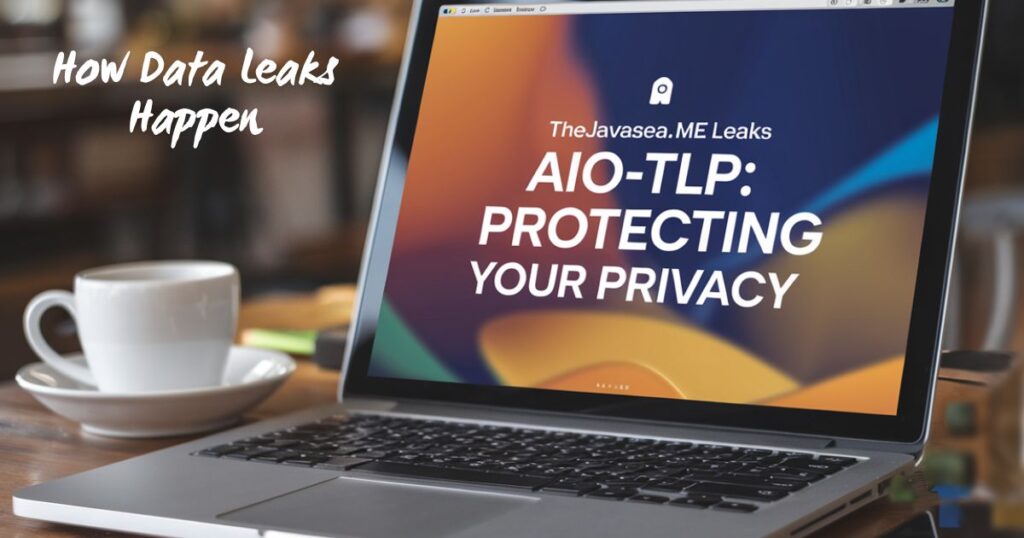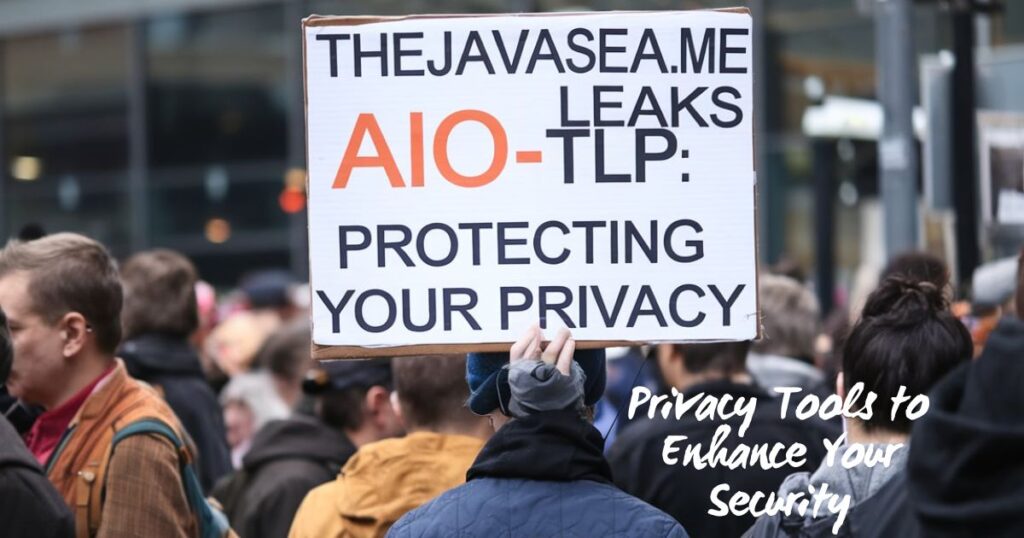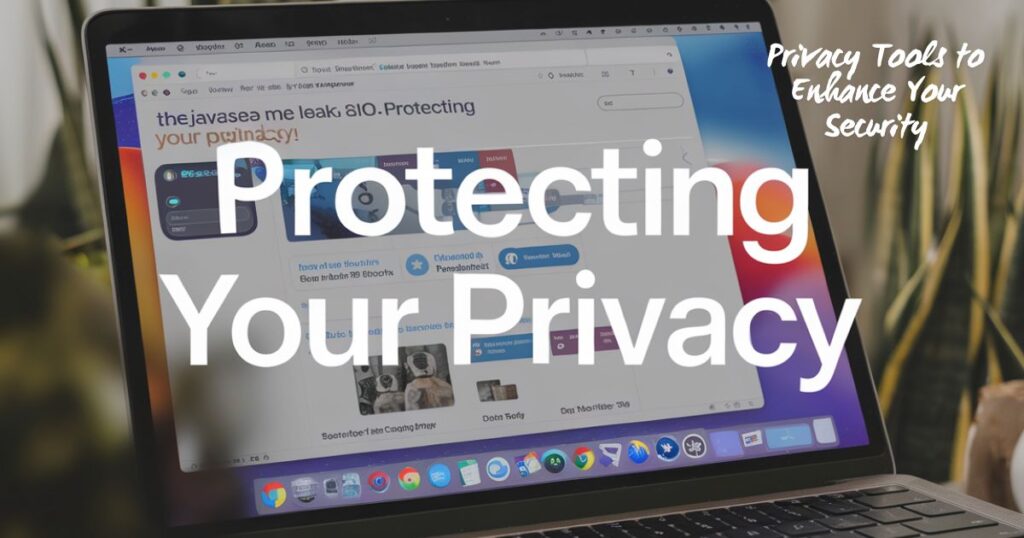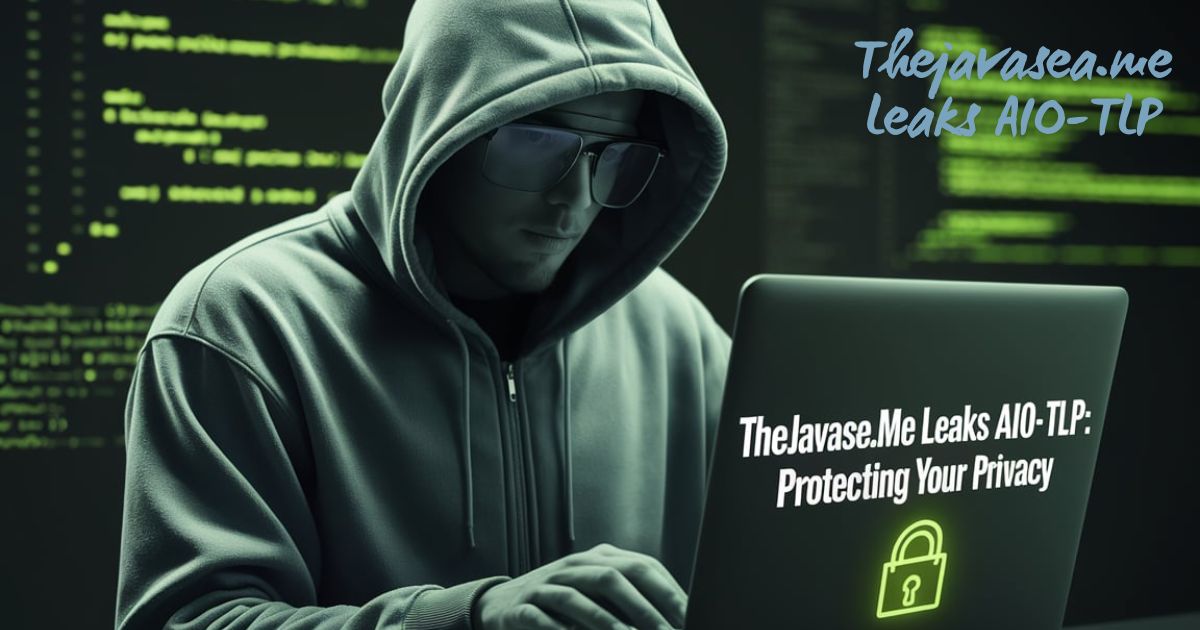In today’s digital landscape, privacy is one of the most pressing concerns for individuals and businesses alike. As data breaches and leaks become increasingly common, people are more aware than ever of the potential dangers posed by their information being exposed online. A growing and alarming trend in this space is the rise of platforms like thejavasea.me Leaks AIO-TLP, which freely share sensitive information with the public.
The internet has become an indispensable tool, but its vast growth has brought along its own set of risks. As technology advances, so do the threats to online privacy. In this article, we’ll explore what thejavasea.me Leaks AIO-TLP is, the threats it poses, and the steps you can take to protect your personal information from being exposed on such platforms.
What is thejavasea.me Leaks AIO-TLP?
Thejavasea.me Leaks AIO-TLP is a notorious website known for leaking a wide array of sensitive data, ranging from personal information like passwords and emails to more critical details like financial records and personally identifiable information (PII). The acronym AIO-TLP stands for “All-In-One Threat Level Protocol,” referring to the broad range of data and tools available on the platform, which can be used for cyber threats and hacking.
It is shocking how much data is exposed on this site, and the risks it presents are profound. Personal data leaked on platforms like thejavasea.me Leaks AIO-TLP can quickly fall into the wrong hands, leading to cases of identity theft, phishing attacks, and unauthorized financial transactions. Not only does this affect individuals, but businesses are also vulnerable to breaches of customer data, which can lead to financial and reputational damage.
The reality is that information leaks are not uncommon today. With so many digital platforms collecting and storing data, the risk of a breach is higher than ever before. Understanding how sites like thejavasea.me Leaks AIO-TLP operate and the consequences of their activities is crucial in safeguarding personal privacy.
The Risks Associated with Data Leaks

When your personal information is exposed on platforms like thejavasea.me Leaks AIO-TLP, the repercussions can be significant. Some of the major risks include:
Identity Theft:
Hackers can use personal information such as your full name, home address, email, or other identifying details to impersonate you online. This stolen identity can then be used to open credit accounts, apply for loans, or even engage in illegal activities under your name. Once your information is compromised, it can be difficult and time-consuming to recover your identity.
Financial Losses:
Sensitive financial information, such as credit card details or bank account numbers, is highly sought after by cybercriminals. If this information is leaked, hackers can quickly withdraw funds from your accounts or make unauthorized purchases, often without you noticing until it’s too late. Even login credentials for financial institutions are at risk, and the consequences can be immediate and severe.
Reputation Damage:
For businesses, a data leak can be devastating, especially when customer information is involved. A breach of information security can lead to a significant loss of trust, with customers unwilling to continue doing business with a company that cannot protect their data. In addition to reputational damage, businesses may also face legal ramifications and financial penalties for failing to safeguard sensitive data.
Phishing Attacks:
Once hackers have access to leaked data, they often use it to create highly targeted phishing attacks. These can be in the form of emails or messages that appear to be from legitimate sources, but are designed to trick the recipient into revealing even more personal information, such as passwords or social security numbers. Phishing scams have become increasingly sophisticated, making them harder to detect.
Read This Post: VyvyManga: Your Ultimate Platform for Manga Enthusiasts
How Data Leaks Happen

Data leaks can occur in a variety of ways, and it’s essential to understand how your information could end up on platforms like thejavasea.me Leaks AIO-TLP. In many cases, breaches occur due to security vulnerabilities in websites, applications, or servers that store sensitive information. Hackers can exploit these vulnerabilities to access and steal vast amounts of data.
Additionally, data leaks can result from human error, such as employees mistakenly sending sensitive information to the wrong recipients or failing to properly secure it. This is especially true for businesses that handle large amounts of customer data. Cybercriminals also use techniques like phishing, social engineering, and malware to trick individuals or businesses into giving up access to their systems.
Once data has been stolen, it often makes its way to the dark web or websites like thejavasea.me Leaks AIO-TLP, where it is shared or sold to other malicious actors. From there, the consequences can quickly spiral out of control.
How to Protect Yourself From Leaks
If your data is exposed on a site like thejavasea.me Leaks AIO-TLP, it’s essential to act quickly to minimize the potential damage. Here are several steps you can take to protect yourself:
Change Your Passwords Regularly
One of the simplest yet most effective ways to protect your online accounts is by changing your passwords regularly. If you suspect that your data has been compromised, update your passwords immediately. Each account should have a unique, strong password that includes a combination of letters, numbers, and special characters. Never use the same password for multiple accounts, as this can allow hackers to access more of your information if one account is breached.
Enable Two-Factor Authentication (2FA)
Two-factor authentication adds an extra layer of security to your online accounts. Even if someone manages to obtain your password, they will not be able to log in without the second verification step, which typically involves entering a code sent to your phone or email. Most major online services, from social media platforms to financial institutions, offer 2FA as an added security measure.
Monitor Your Accounts for Unusual Activity
Keep a close eye on your bank accounts, credit cards, and other online services for any suspicious activity. If you notice any unauthorized transactions or logins, contact your service provider immediately to freeze the account. It’s also a good idea to set up alerts for large transactions or logins from unfamiliar devices, which can help you spot potential fraud early.
Use a Password Manager
Managing multiple strong passwords can be a challenge, but a password manager can help. These tools securely store your passwords, allowing you to create unique, complex passwords for each account without having to remember them all. Popular password managers like LastPass, Dashlane, and 1Password can even alert you if any of your saved passwords have been compromised in a breach.
Update Your Software and Devices
Keeping your devices and software up to date is essential for protecting your data from cyberattacks. Software updates often include patches for security vulnerabilities, so failing to update can leave your system open to exploitation. This applies not only to your operating system but also to antivirus software, web browsers, and any other applications you use regularly.
Privacy Tools to Enhance Your Security

Beyond these basic steps, there are additional tools you can use to enhance your privacy and protect yourself from data breaches:
Virtual Private Network (VPN)
A VPN is one of the most effective tools for protecting your online privacy. By encrypting your internet connection, a VPN prevents third parties, including hackers and advertisers, from tracking your online activities. VPNs are especially useful when connecting to public Wi-Fi networks, which are often unsecured and vulnerable to attacks. With a VPN, your IP address is hidden, and your location is anonymized, making it more difficult for hackers to target you.
Antivirus and Anti-Malware Software
Having reliable antivirus and anti-malware software is essential for protecting your devices from harmful programs that can steal your data. These tools can detect and remove malware, viruses, and other malicious software that hackers use to infiltrate your system. Some antivirus programs also include features like firewall protection and web security, which can help you stay safe while browsing the internet.
Encrypted Messaging Apps
Messaging apps that offer end-to-end encryption, such as Signal and WhatsApp, provide an added layer of privacy for your communications. End-to-end encryption ensures that only you and the intended recipient can read your messages, even if they are intercepted by a third party. This is a much more secure option than standard SMS or email, which can be vulnerable to hacking.
Secure Cloud Storage
If you store sensitive files in the cloud, it’s crucial to choose a provider that offers end-to-end encryption. This ensures that your data remains protected, even if the provider’s servers are compromised. Services like Google Drive, Dropbox, and iCloud offer varying levels of security, so it’s important to select one that meets your privacy needs.
Read This Post: printable:vhljjzbpjhc= december 2023 calendar Guide
The Impact of thejavasea.me Leaks AIO-TLP on Businesses

While individuals face significant risks from data breaches, businesses can suffer even greater consequences. A breach at the corporate level can result in financial losses, damage to the company’s reputation, and potential legal action. In some cases, businesses may be held liable for failing to protect customer data, leading to costly fines and penalties.
For businesses, the best defense against data breaches from sites like thejavasea.me Leaks AIO-TLP is to implement robust cybersecurity measures. These include:
- Employee Training
Educating employees about the risks of data breaches and how to avoid them is crucial. Regular training sessions can help employees recognize phishing attacks, social engineering tactics, and other common threats. - Security Audits
Conducting regular security audits can help businesses identify vulnerabilities in their systems and address them before they are exploited. Audits should include a review of the company’s software, hardware, and internal processes to ensure that all data is being handled securely. - Encryption
Encrypting sensitive data is one of the most effective ways to protect it from unauthorized access. Even if a hacker manages to breach the company’s system, encrypted data is nearly impossible to read without the proper decryption key. - Incident Response Plan
Every business should have an incident response plan in place to deal with data breaches. This plan should outline the steps the company will take in the event of a breach, including notifying affected customers, conducting an internal investigation, and reporting the breach to authorities if necessary.
Conclusion: Safeguarding Your Privacy Against thejavasea.me Leaks AIO-TLP
The rise of platforms like thejavasea.me Leaks AIO-TLP highlights the growing importance of protecting your online privacy. With data breaches becoming more frequent and sophisticated, it’s crucial to take proactive steps to safeguard your personal information.
By implementing strategies such as regularly changing passwords, enabling two-factor authentication, monitoring your accounts, and using privacy-enhancing tools like VPNs and encrypted messaging apps, you can significantly reduce your risk of falling victim to a data breach.
It’s important to remember that protecting your privacy is an ongoing effort. As technology evolves, so do the methods that hackers use to exploit vulnerabilities. Stay vigilant, keep your software up to date, and review your security measures regularly to ensure that you remain protected in an increasingly digital world.
FAQs
1. What is thejavasea.me Leaks AIO-TLP?
Thejavasea.me Leaks AIO-TLP is a website that leaks a variety of sensitive data, including passwords, emails, and financial information, posing serious risks to personal privacy.
2. How can I protect my data from leaks?
You can protect your data by regularly changing your passwords, enabling two-factor authentication, and monitoring your accounts for suspicious activity. Using tools like VPNs and password managers also helps enhance security.
3. What should I do if my data has been leaked?
If your data has been leaked, immediately change your passwords, enable two-factor authentication, and monitor your financial accounts for any unusual activity. In extreme cases, you may need to freeze your accounts to prevent further unauthorized access.
4. What privacy tools can I use to enhance my security?
Consider using tools like VPNs, antivirus software, encrypted messaging apps, and secure cloud storage to keep your data safe and private.
5. How can businesses protect themselves from data breaches?
Businesses can protect themselves by conducting regular security audits, training employees on cybersecurity best practices, encrypting sensitive data, and having an incident response plan in place to handle breaches effectively.

Hello, I’m Matthew, an author at GenRealRedar, where I explore the dynamic worlds of Lifestyle, Tech, Gaming, and Travel. My articles are designed to offer insightful and engaging content, breaking down complex topics into easily digestible reads for a broad audience. Stay tuned on GenRealRedar.com for fresh perspectives and the latest updates on all things tech, lifestyle, and beyond.

